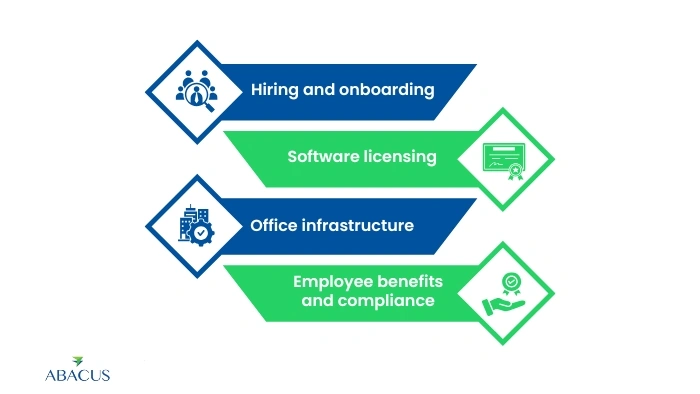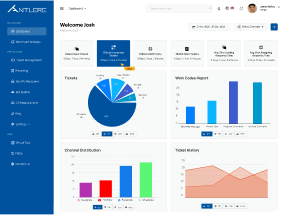Why You Should Outsource Ecommerce Customer Service: A Complete Guide For 2025
In the ultra-competitive eCommerce industry, customer service is more than just a function; it is a brand experience. With the rapid scaling of eCommerce comes the soaring expectation of customers. Consumers today expect instant responses, immediate problem resolution, and humanized engagement across all digital touchpoints. That’s where the demand for eCommerce customer service comes into the picture as a competitive imperative.
This ultimate guide takes you through the why, how, and who of outsourcing eCommerce support solutions. Whether you’re an eCommerce founder or an operations manager or a CX leader who’s curious to outsource eCommerce customer service, keep on reading.
What Pressure Does the Ecommerce Boom Bring?
According to Statista, global eCommerce sales are expected to hit $7.4 trillion by 2025. Such growth also means a greater demand for 24/7 customer support, multilingual agents, instant shipping updates, returns, and refunds in real time.
However, it is not always possible or practical, especially for small to mid-sized businesses (SMBs), to create an in-house powerhouse capable of satisfying this demand. Businesses outsource eCommerce customer service to avoid handling live chat, email support, order tracking, returns, and even AI-based support automation.
Outsourcing eCommerce customer service implies hiring a third-party company, commonly called a BPO (Business Process Outsourcing) or a CX outsourcing company, to handle your customer queries and support operations for your brand.

This can include:
- Chat and email support
- Phone support and callbacks
- Logistics support and order tracking
- Refund and return management
- Onboarding and product inquiries
- Feedback and review management
- Multilingual support across global markets
Whether it’s Shopify, WooCommerce, Magento, or Amazon Seller Central, players like SupportNinja, Helplama, and WOW24-7 have an expert eCommerce solution, and a tailored one at that.
Benefits of opting to outsource eCommerce customer service
Providing Affordable Support Around the Clock
A big hurdle in customer service is 24/7 availability. With customer service outsourcing, you get access to a global talent pool without having to manage night shifts internally.
Helplama, for example, provides hybrid teams with human agents and AI chatbots that cover all your bases even on off-business hours, weekends, and peak sale periods.
Scale Rapidly Without Sacrificing Quality
Ecommerce can often encounter unpredictable spikes like Black Friday, flash sales, or TikTok trends that can take your store by storm. Scaling from 2 agents to 20 or even 200 is as easy as turning a tap off or on when it comes to eCommerce customer service outsourcing.
For example, HiredSupport is one of the top BPO providers in this space that enables brands such as Jaxxon and Nomatic to scale their customer support capabilities instantly without delays in training time.
Cost Savings Without Cutting Corners
Deloitte claims that companies benefit from 60% reduced operational costs when they outsource customer service.

Outsourcing eliminates expenses related to:
- Hiring and onboarding
- Software licensing
- Office infrastructure
- Employee benefits and compliance
It allows you to reinvest that capital into things that drive growth, like marketing, inventory, or tech development instead.
Expertise In Ecommerce & CX Best Practices
Seasoned eCommerce outsourcing companies understand the industry inside out. Whether it is post-sale surveys or managing returns, they are always trained and equipped.
Some companies, like Abacus BPO, take this service a step ahead and provide AI-driven eCommerce customer services like behavioral tracking and sentimental analysis.
When to Outsource Ecommerce Customer Service?
Not every business has to outsource eCommerce customer support on day one. However, if you relate to any of these points, it’s likely time for you to outsource eCommerce customer service:
- Your team is spending more time replying to emails than growing the business
- Responses are taking hours or days to reach customers
- New regions with new language barriers
- Your NPS, CSAT, or reviews are dropping
- It’s difficult to keep with up customer support with a new launch or promotion
If you have said yes to even two of these, it is time to learn how you can outsource eCommerce customer service successfully.

Steps To Outsource Ecommerce Customer Service
Define Your Support Needs
Start with a support audit. What channels need coverage? What are your ticket volumes on average? What were the peak traffic hours?
Identify:
- Peak times
- Seasonal trends
- Repeated queries (order statuses, return requests, technical assistance)
This will help your outsourcing company to create a customized plan.
Choose the Right Outsourcing Partner
Key factors to consider:
- Ecommerce experience and platform integrations
- Industry-specific case studies
- Ability to scale quickly
- Multilingual capabilities
- Cultural alignment and brand tone
Abacus Outsourcing provides brands with “invisible” outsourcing, which means customers would be unable to tell that they are not engaging with an in-house agent.
Train and Align the Team
Outsourced doesn’t mean disconnected. Top-performing ecommerce brands conduct:
- Brand onboarding workshops
- Knowledge base sharing
- Regular training updates
- Shared dashboards and analytics
But with the use of tools like Abacus, you can easily let both you and your outsourcing partner (or team) share visibility.
Set KPIs and Monitor Performance
Establish metrics from the start. Common ones include:
- First response time
- Resolution time
- CSAT (Customer Satisfaction Score)
- NPS (Net Promoter Score)
- Self-service or AI ticket deflection rates
The best eCommerce outsourcing service provider, Abacus offers real-time dashboards and quarterly reviews to keep both teams in line.
Final Thoughts
Outsourcing eCommerce customer service gives your business agility, its ability to keep going, and experience in a crowded marketplace. For everyone from a growing DTC brand to a global marketplace, outsourcing allows you to service your customers wherever they are without breaking your back or your wallet.
As eCommerce develops, the greatest differentiator will be customer experience. An eCommerce outsourcing services company drives fast, human, and helpful support, which keeps you ahead of the game and strengthens loyalty and revenue.







